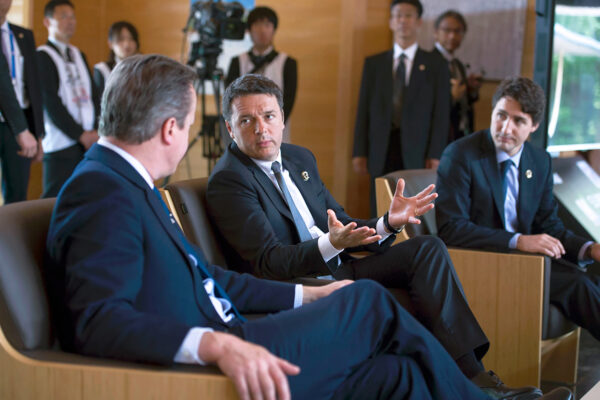
The European countries that are among the most critical of the blog’s sanctions against Russia have been the least affected by the punitive measures, research shows.
A report from the Geneva-based Program for the Study of International Governance (PSIG) found that Italian exports, for example, suffered less than the European average from the sanctions, which restrict European companies from trading with Russian businesses and individuals who are linked to President Vladimir Putin’s regime.
Yet at a European Council summit on Friday, the Italian prime minister, Matteo Renzi, blocked a proposal from France, Germany and the United Kingdom to add penalties for Russia’s bombing of civilians in the Syrian city of Aleppo.
“I think that to refer in the text to sanctions makes no sense,” Renzi told reporters.
Renzi has shielded Russia before. As I reported here in January, he first accused Germany and the Netherlands of hypocrisy for supporting EU sanctions against Russia while going ahead with the extension of a Baltic Sea pipeline that bypasses Central Europe — only to turn around and try to get his country in on the deal!
Southern woes
It’s not just Italy. The Financial Times reports that there were reservations about fresh sanctions in Austria, Cyprus, Greece and Spain.
PSIG found that Austria has suffered disproportionately from the embargo. Its exports to Russia have shrunk 4.6 percent since 2013, the year before Russia annexed the Crimean Peninsula from Ukraine and Western countries imposed sanctions.
A 2.7-percent decline in Cypriot exports to Russia was in line with the EU average of 2.8 percent.
But Greece and Spain have little to complain about. The former saw its exports drop only 1 percent; the latter 1.3 percent.
“Greek exports to Russia have actually increased in some industries,” said Dr. Erica Moret, the report’s lead author.
Eastern Europeans toughen it out
By contrast, Central and Eastern European countries that used to be dominated by Russia have seen huge decreases in their trade.
The Baltic states, which border Russia, saw their exports fall between 9.1 and 12.7 percent. Finland experienced a 7.1-percent decline. The Czech Republic, Poland and Slovakia reported similar losses.
“This has been precipitated by Moscow’s retaliatory countermeasures on EU food imports, the drop in the global oil price and Russia’s subsequent recession,” according to Moret.
Unlike the Greeks and the Italians, who, polls suggest, have considerable sympathy for Russia and Putin, Eastern Europeans have experienced Russian rule firsthand and are willing to suffer the consequences of safeguarding against further Russian encroachment on the region.
